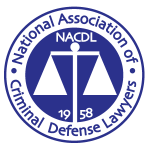Before choosing between a plea and trial, you should know that there are four ways a case typically ends:
- A case can end by the defendant taking a plea.
- A case can end if it is dismissed through the process of motion practice.
- A case can end with a trial.
- A case will end if the defendant dies.
What is a plea?
Prosecutors can (but are not required to) offer plea deals to defendants in exchange for the defendant entering a guilty plea. Sometimes the plea deals reduce the level of charge, and sometimes they don't reduce the level of charge. For example, let's say you are charged with DWI. If so, you might be charged with:
- VTL 1192(2) Driving with BAC of .08% or greater (misdemeanor); and
- VTL 1192(3) Driving While Intoxicated (misdemeanor); and possibly a violation-level offense such as
- VTL 1180(d) Speed in Zone
If you have no prior convictions, and if your BAC wasn't too high, the prosecutor might offer you a plea to one count of VTL 1192(1) Driving While Ability Impaired (a non-criminal offense) in full satisfaction of all the other charges, with a sentence promise of the minimums allowed by law. In other words, you are being offered a plea reduction to a non-criminal offense, and all your other charges will be dismissed. You would then plead guilty to that lesser charge and be sentenced on the Driving While Ability Impaired (DWAI) conviction.
On the other hand, if you do have prior convictions, or if you had a high BAC, the prosecutor might not offer you a plea reduction to DWAI. Instead, she might offer you a plea to one count of VTL 1192(3) Driving While Intoxicated (misdemeanor), with a sentence promise of the minimums allowed by law. In other words, the misdemeanor charge of VTL 1192(2) Driving with BAC of .08% or greater and the Speed in Zone charges would be dismissed, and you could plead to one count of misdemeanor DWI.
Why would somebody take a plea like that when the offer doesn't include a reduction?
There are three reasons:
First, by pleading to one count of VTL 1192(3), you eliminate the possibility that you could be convicted after trial of VTL 1192(2), VTL 1192(3), and the Speed in Zone. If that was to happen you could end up paying an extra $1,100 or more in fines and surcharges compared to what you would have paid with the plea offer.
Second, if you are convicted of misdemeanor DWI after trial there are a few judges in the area who would have no problem sentencing you to jail or probation - even on a first offense. Knowing exactly what is going to happen after a plea can be much more tolerable than leaving sentencing up to a hostile judge. (Judges have complete control over sentencing after trial, while prosecutors have a lot of control over sentencing when it is part of a plea deal.)
Third, some defendants don't want to spend three or four months waiting to go to trial while their driving privileges are restricted. Taking a plea can get them back on the road considerably faster than going to trial.

What is a trial?
A trial is when a prosecutor is forced to produce evidence of guilt beyond a reasonable doubt before a defendant can be convicted of anything. That is a pretty high burden to meet.
If a case goes to trial, all the plea negotiations are thrown out the window. In other words, anything the prosecutor promised prior to trial is no longer a promise. For example, if you are charged with DWI, and the prosecutor offers a plea to the non-criminal offense of DWAI, you can either take the plea or go to trial. If you go to trial, the trial is for misdemeanor DWI - not DWAI. You could be found guilty of DWI after trial, and the judge can sentence you on the DWI. It doesn't matter that the prosecutor offered you a DWAI. By the same token, going to trial also means you could be found "not guilty."
On the topic of trials, there are two types: bench and jury. When most people think of a trial, they imagine a jury of their peers sitting in a jury box, deciding guilt or innocence. A defendant in a misdemeanor trial has a right to a jury trial. However, the defendant could also choose to have a "bench trial." A bench trial occurs when the defendant waives his right to a jury trial, and instead chooses to have the judge decide guilt or innocence. DWI defendants often choose bench trials because many judges are better equiped to separate their feelings about drinking and driving from their assessment of whether a prosecutor has proven guilt beyond a reasonable doubt. The minute some juries hear "DWI" they are ready to convict the defendant, whether the prosecutor meets her burden of proof or not.
An experienced DWI attorney will act as a guide as you decide whether to take a plea or go to trial, and then whether to ask for a bench or jury trial. We offer upfront pricing estimates on our website, excellent trial results, and outstanding client reviews. Feel free to call us at (585) 485-0025 for a free phone consultation.
Militello Law Firm
2480 Browncroft Blvd.
Rochester, NY 14625
1 University Drive
Geneseo, NY 14454
Phone: (585) 485-0025
Fax: (585) 286-3128




